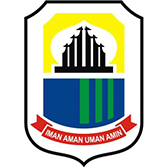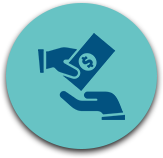Problems Overview
to clean water.
As piped water in Indonesia is not safe for
consumption and other water sources are often
contaminated, many children suffer from
diarrhea, which causes them to skip school
more often than needed.
Lacking safe drinking water, children often buy
very sugary drinks from vendors near the school,
which increases the risk of a myriad of health
problems including diabetes and obesity.
Buying bottled drinks also contributes to
single use plastic waste.

8 Million
Children stunted in Indonesia
Through constant exposure to diarrhea
1United Nations Children’s Fund (2020). The State of Children in Indonesia – Trends, Opportunities and Challenges for Realizing Children’s Rights. Jakarta: UNICEF
Indonesia. (page 40)
The Majority of Indonesian Children Do Not
Drink Enough Water at School
The Majority of Indonesian Children Do Not Drink Enough Water at School


Risks from chronic dehydration
from outside. Excessive consumption of sweet drinks can have negative effects on a child’s health
including hyperactivity, behavioural changes, and early onset type 2 diabetes.
2Survey Data from Lebak School Project
3Briawan. D., Rachma, P & Anisa, K. Drinking Habits and Fluids Intakes of School Children in Urban. Journal of Nutrition and Food. 6(3) : 186-191. Bogor, Indonesia
Solution:
Drinking Water for just $1.99 Per Student




Nazava’s Track Record Providing Drinking
Water to Schools
Nazava’s Track Record Providing Drinking Water to Schools
water filters to over 550 schools
2016
Began working with foundations
in Indonesia that that provide
drinking water to schools.
children gained access to safe drinking
water, mostly in Yogyakarta, Banten
province, and Pacitan & Fak-fak regencies.

2019
Provided water in Bandung
Bandung and the West Bandung regency
that participated in the program.
Approximately 14,500 children gained
access to safe drinking water at school.

2021
Nazava – Aqua Danone Safe
Water for Schools in Lebak
Program
150 schools in Lebak Regency, impacting
35,000 children.

2027
Began working with foundations
in Indonesia that that provide
drinking water to schools.
children gained access to safe drinking
water, mostly in Yogyakarta, Banten
province, and Pacitan & Fak-fak regencies.

2018
Provided Drinking water for
primary schools in Cimahi
in the program, impacting 1000 children.

2020
Program Expansion
us via their CSR programs to increase the
impact of the school program.

2022
Continuing the Project with Aqua
and Danone Communities
to the program.


2021 Safe Water for Schools
in Lebak Pilot Project
partnered with Danone-Aqua providing
water filters to 150 schools, impacting 35,000
children with drinking water in Lebak Regency,
one of the poorest areas in Java.
2021 Safe Water for Schools in
Lebak Pilot Project
2021 Safe Water for Schools in Lebak Pilot Project
primary schools by 2027, impacting 7.5 million children. The success of the project suggests that similar
projects can be implemented and scaled in other similar geographies throughout Indonesia.
Theory of Change


Results and Impact From
Lebak Pilot Project
Results and Impact From Lebak Pilot Project
anecdotal evidence is backed by research that shows dehydration has a negative impact on academic
performance.
Roberta Fadda, Gertrude Rapinett, Dominik Grathwohl, Marinella Parisi, Rachele Fanari, Carla Maria Calò, Jeroen Schmitt,Effects of drinking supplementary
water at school on cognitive performance in children, Appetite, Volume 59, Issue 3, 2012, Pages 730-737
Impact Stories from the Safe Water
For Schools In Lebak Program
Impact Stories from the Safe Water
For Schools In Lebak Program
Future of Lebak Pilot Project –
Expansion to 420 Schools
anecdotal evidence is backed by research that shows dehydration has a negative impact on academic
performance.



anecdotal evidence is backed by research that shows dehydration has a negative impact on academic
performance.
Future of the Safe Water for Schools Project –
Expansion to 50,000 schools
Future of the Safe Water for Schools Project – Expansion to 50,000 schools
with the goal of reaching 50,000 schools, impacting 7.5 million school children by 2027.
A total of US$12.3 million is needed to reach this goal. We will raise this using the following
innovative financing sources:





Ackowledgements
We hope that these partnerships will continue until all schools in Indonesia have access to safe drinking water. We also hope to partner with other sectors.





Our Team

Guido

Lisa

Wela

Bibah

Prisca

Arya

Suyatno

Permana

Subagyo

Ayie















